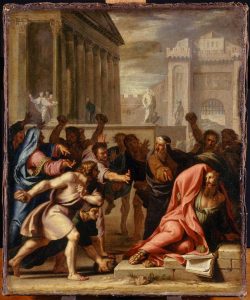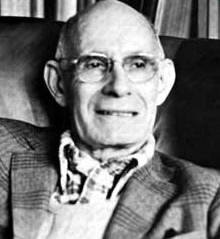
Was Paul persecuted for preaching a crucified messiah?
In 1 Corinthians 1:23 we read that the message of “Christ crucified” was a “stumblingblock” or “offence” to the Jews. There is no explanation to inform us exactly why Jews were so offended by Paul preaching that a messiah had been crucified but that hasn’t prevented many readers from knowing the reason without any shadow of doubt.
The assumption has generally been that the Jewish idea of a messiah was a superhero who would conquer the evil powers of the world and set up the Jewish people as the ruling kingdom over everyone else. There is a further understanding that the Jews hated Paul enough to persecute him because his teaching about the messiah was so outrageous and offensive.
Let’s try the prediction test on the latter of these hypotheses.
If Paul’s crucified messiah really was a scandalous polar opposite (so opposite as to be virtually inconceivable or blasphemous to many Jews) to a standard messianic idea with which Jews as a whole identified, then we would expect to find Paul addressing that contrary messianic figure somewhere and making it clear why it was deficient and why his crucified messiah was indeed superior.
Unfortunately we find no evidence of any such polemic. Paul’s writings nowhere hint of that sort of clash of views.
And this is not surprising when we attempt to find out what the “Jewish” idea of a messiah actually was in the time of Paul. There was none. Or more correctly, there were several ideas alongside an apparent lack of interest in the idea altogether.
This post is not a synthesis of wide readings on scholarship of the nature and place of messianic concepts in Second Temple Judaisms; it is restricted for most part to two quite old publications by Morton Smith:
- “What is Implied by the Variety of Messianic Figures?” Journal of Biblical Literature, Vol. 78, No. 1 (Mar., 1959), pp. 66-72
- “The Reason for the Persecution of Paul and the Obscurity of Acts” (1967) in Ubach, E.E., Werblowsky, R.J. Zwi, Wirszubski, C. (eds.), Studies in Mysticism and Religion Presented to Gershom G. Scholem on his Seventieth Birthday, pp. 261-268
After addressing instances where scholars have read documents as if they were inkblots in a Rorschach test to find references to a messiah, Morton Smith in the 1959 article wrote: Continue reading “Was Paul Really Persecuted for Preaching a Crucified Christ?”

